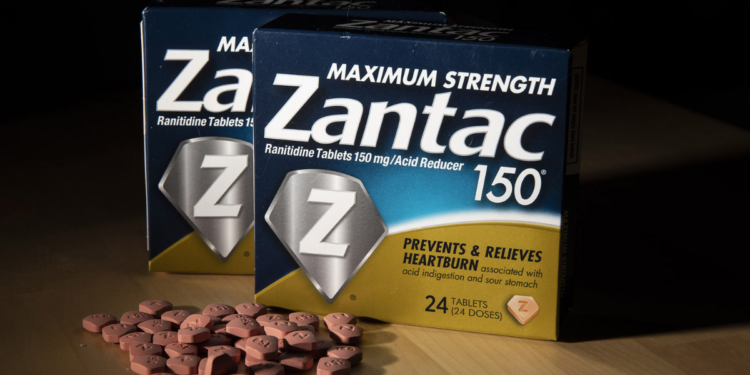In recent years, the pharmaceutical world has been abuzz with discussions and debates surrounding the potential link between Zantac, a popular medication used to treat heartburn and acid reflux, and the development of cancer. The central question that looms over this issue is: “Does Zantac cause cancer?” In this article, we will delve into the scientific aspects of this controversy and seek to provide clarity on the matter.
The Ranitidine Conundrum
To address this inquiry, it’s crucial to begin by examining the key component of Zantac – ranitidine. Ranitidine, the active ingredient in Zantac, is under scrutiny due to its potential association with a substance called N-nitrosodimethylamine (NDMA), which is known to be carcinogenic. It’s essential to clarify that the scientific community has not reached a conclusion regarding whether ranitidine definitively causes cancer in humans.
The NDMA Connection
The concern over Zantac’s link to cancer is rooted in the plausible connection between ranitidine and NDMA formation. Studies dating back to the 1980s first hinted at this connection. NDMA is a chemical compound with carcinogenic properties, and its presence in medications has raised alarms. However, the story becomes more complicated when we consider one particular study that examined the medical records of a staggering 65 million people. Surprisingly, this study found that individuals who took ranitidine had a lower cancer risk compared to those who used a different H2 blocker known as famotidine.
The FDA’s Intervention
The Food and Drug Administration (FDA) has played a pivotal role in this controversy. In response to mounting concerns, the FDA took the significant step of requesting the withdrawal of all Zantac products containing ranitidine from the market. This move responded to the potential risks associated with NDMA contamination linked to ranitidine.
In the aftermath of this FDA action, Sanofi, the manufacturer of Zantac, introduced a new over-the-counter formula called “Zantac 360,” which contains famotidine instead of ranitidine. Thus far, the FDA has not associated famotidine with NDMA contamination or an increased cancer risk.
Legal Battle Unfolds
The Zantac controversy has not only captured the attention of the scientific community but has also led to a legal battleground. Currently, more than 2,056 federal Zantac lawsuits have been filed in a Florida federal court. These lawsuits allege that Zantac was responsible for causing various types of cancer, and they argue that drug manufacturers failed to adequately warn the public about these potential risks. The primary cancer at the forefront of these legal battles is bladder cancer.
Unpacking NDMA: The Culprit in Zantac
To better comprehend the connection between Zantac and cancer, it is crucial to understand the role of NDMA in this context. NDMA, or N-nitrosodimethylamine, is the chemical compound at the heart of this controversy. It is well-established that NDMA is known to cause cancer in animals and is highly likely to pose a similar risk to humans.
What sets Zantac apart in this narrative is its unique relationship with NDMA. Among various drugs that the FDA has identified as contaminated with NDMA, such as valsartan, losartan, and metformin, ranitidine, the active ingredient in Zantac, stands out as the only medication in which levels of the carcinogen may potentially increase over time as the drug sits on the shelf. This alarming revelation was first brought to the FDA’s attention by Valisure, a pharmacy, in June 2019. Subsequently, in September 2019, Valisure submitted a citizen’s petition urging the FDA to recall all ranitidine products.
Valisure’s research unveiled that ranitidine possessed an inherent instability that could lead to the generation of alarmingly high levels of NDMA. The presence of dimethylamine (“DMA”) and nitrite, two chemical components within ranitidine, synergistically combine to form NDMA. These findings were substantiated by studies conducted by prominent institutions like Stanford University, which detected NDMA levels well above the FDA’s established daily acceptable intake limit of 96 nanograms. The Stanford study raised concerns that ranitidine could potentially generate millions of nanograms of NDMA, a stark contrast to the established safety thresholds.
Does Zantac Cause Cancer?
In the midst of this ongoing controversy, the scientific and legal communities continue to grapple with the question: “Does Zantac cause cancer?” While the scientific evidence does suggest a potential link between ranitidine and NDMA formation, it is important to recognize that no conclusive proof has been established to definitively assert that Zantac directly causes cancer in humans.
The FDA’s market withdrawal of ranitidine-containing Zantac products underscores the need for careful consideration regarding medications, their safety, and the potential risks they may pose. The introduction of new formulations, such as Zantac 360, containing famotidine instead of ranitidine, is indicative of efforts to address these concerns and provide safer alternatives to consumers.
Nonetheless, the legal battles surrounding Zantac highlight the seriousness of the situation and the potential health consequences that users may have faced. It is essential for individuals who have taken Zantac and subsequently developed health issues, particularly cancer, to consult with healthcare professionals and explore their legal rights.
Conclusion: Does Zantac Cause Cancer?
In the realm of medicine and pharmaceuticals, questions surrounding safety and potential health risks are of paramount importance. The debate over whether Zantac causes cancer due to its ranitidine content is a complex and evolving issue. While there is no definitive confirmation that Zantac directly leads to cancer in humans, the presence of NDMA and the concerns surrounding its formation within the medication raise valid concerns.




